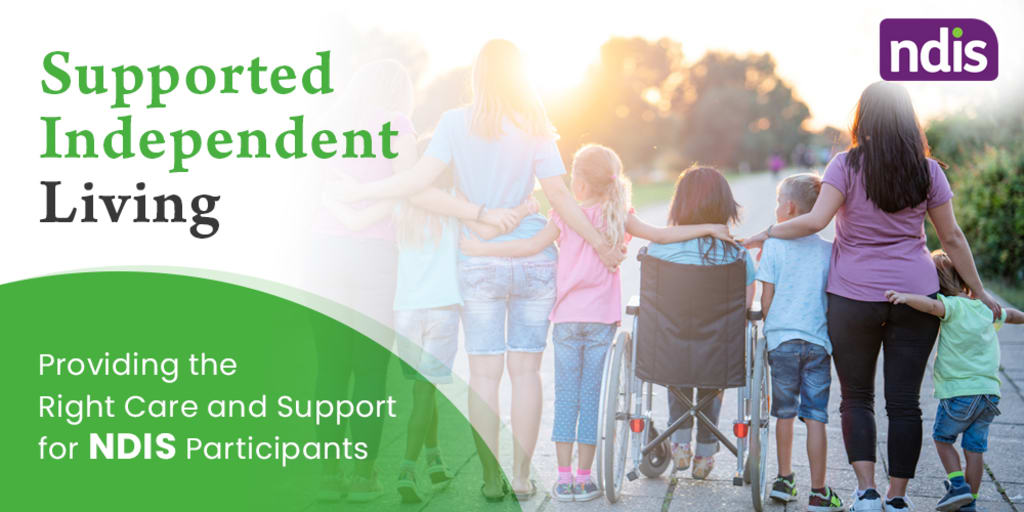Supported Independent Living (SIL) is a crucial aspect of the National Disability Insurance Scheme (NDIS) that aims to empower individuals with disabilities to lead fulfilling and independent lives. With the provision of suitable accommodation options, such as short-term and medium-term housing, NDIS participants can experience improved overall well-being and enhanced opportunities for personal growth. In this article, we will explore the benefits of NDIS Supported Independent Living accommodation and shed light on how it can contribute to longer, healthier lives for people with disabilities.

Understanding Supported Independent Living (SIL) Services:
Supported Independent Living services encompass a range of housing options tailored to the specific needs of NDIS participants. These accommodations are designed to provide a safe and inclusive environment where individuals with disabilities can receive support in various aspects of daily living. SIL services prioritize the autonomy and independence of participants, offering assistance with tasks like meal preparation, personal care, and household chores, while also fostering opportunities for community engagement and skill development.
The Importance of Suitable Accommodation:
Access to appropriate accommodation is vital for individuals with disabilities, as it directly impacts their quality of life. NDIS Supported Independent Living accommodation ensures that participants have a comfortable and secure living environment that caters to their unique requirements. By providing a space that is accessible, adaptable, and equipped with necessary assistive technologies, SIL services enable individuals to navigate their daily lives more easily, promoting a sense of belonging and empowerment.
Enhancing Physical and Mental Well-being:
One of the key benefits of NDIS Supported Independent Living accommodation is its potential to improve the overall health and well-being of people with disabilities. By having access to a supportive living environment, individuals can receive the necessary assistance and encouragement to engage in physical activities, maintain a balanced diet, and manage their healthcare needs effectively. Furthermore, SIL services often prioritize mental health support, fostering emotional resilience and providing access to counseling or therapy when needed.
Promoting Social Inclusion and Community Engagement:
Living independently does not mean living in isolation. NDIS Supported Independent Living accommodation promotes social inclusion by facilitating connections within the community. SIL services often offer opportunities for participants to engage in social activities, connect with peers, and participate in community events. This social interaction helps combat loneliness and fosters a sense of belonging, positively impacting mental health and overall life satisfaction.
How to Access NDIS Supported Independent Living Accommodation:
Accessing NDIS Supported Independent Living accommodation involves several steps. Firstly, individuals must become NDIS participants and undergo an assessment to determine their eligibility for SIL services. Once deemed eligible, participants can start the planning process, which involves creating a support plan that outlines their specific needs and goals. It is advisable to seek assistance from a registered NDIS service provider, such as Carepro Disability Services, to navigate the application and planning stages effectively.
Conclusion:
In conclusion, the NDIS offers a wide range of accommodation options to support individuals with disabilities in Australia. Supported Independent Living (SIL), short-term accommodation, and medium-term accommodation are designed to empower individuals, foster independence, and promote community inclusion. By accessing these services, NDIS participants can receive the necessary support to enhance their quality of life and achieve their goals.
Supported Independent Living accommodation plays a crucial role in enabling individuals with disabilities to lead longer, healthier lives. By providing suitable housing options, SIL services empower NDIS participants to live independently while receiving the necessary support to thrive. The physical, mental, and social benefits of NDIS Supported Independent Living accommodation contribute to enhanced well-being, improved quality of life, and increased opportunities for personal growth. If you or someone you know is an NDIS participant seeking supportive accommodation, consider reaching out to a registered NDIS services provider in Melbourne like Carepro Disability Services, committed to helping individuals with disabilities achieve their goals and aspirations.
Comments
Post a Comment